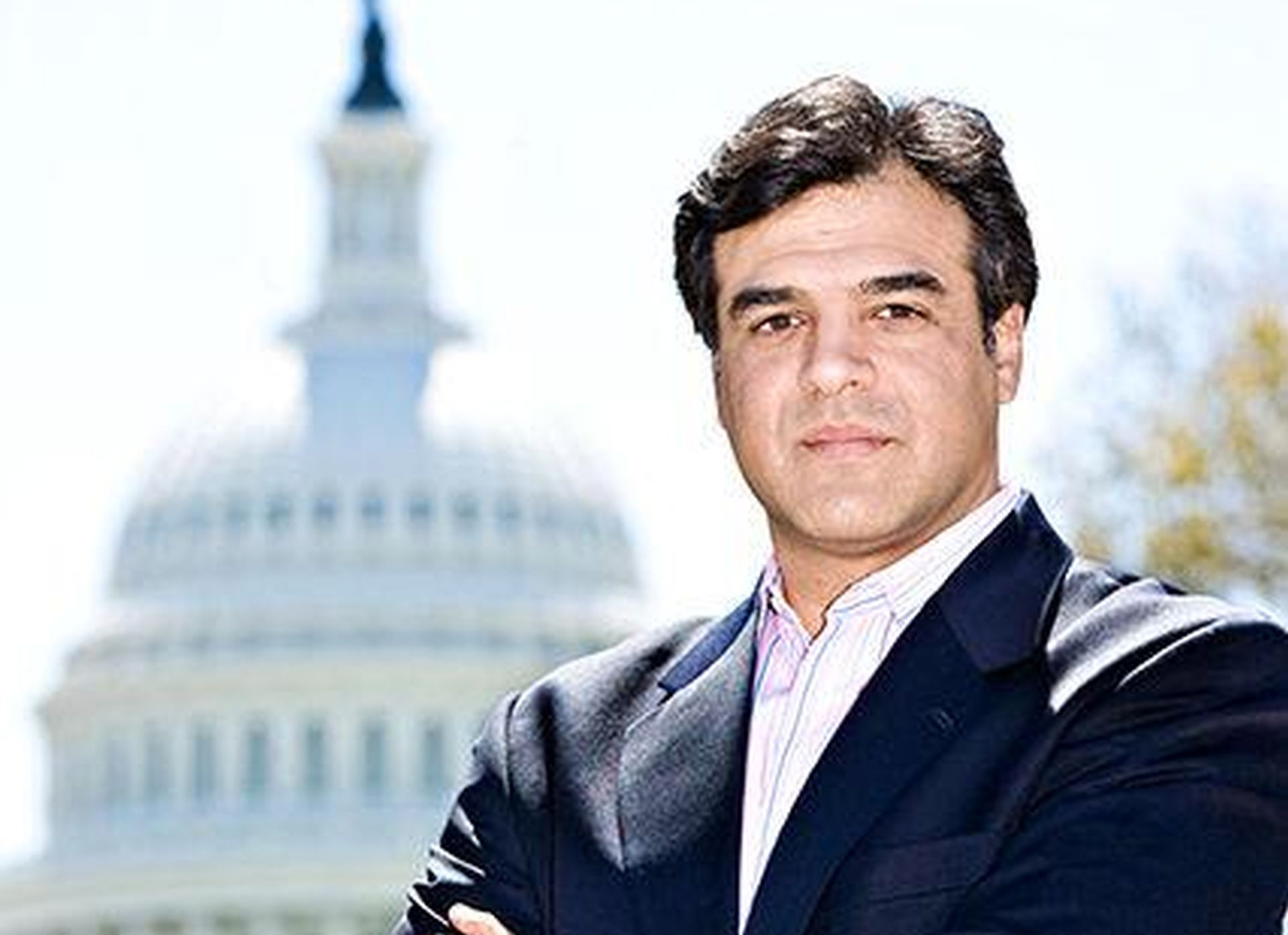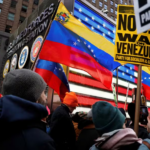
John Kiriakou, a former CIA agent, gave an exclusive interview to DCM and spoke about his experience inside the largest US intelligence center. The former spy also spoke about President Lula’s position on the war in Ukraine and the shock of Americans with Bolsonaro’s trip.
See some excerpts.
World Center Journal: John, you became famous for denouncing Al Qaeda’s prisoner interrogation program, which involved torture. Now we have Lava Jato whistleblowers accusing prosecutors who received American training of “extortion”. Has the US method been exported to Latin America?
John Kiriakou: I wear my prison sentence as a badge of honor. I spent 23 months in prison after denouncing the CIA’s torture program. I was right and they were wrong. And I’m proud of what I’ve done. I denounced the CIA. I continued to denounce the CIA.
And you ask a very good question. Did the CIA export these crimes to Latin America? And the honest answer is that we don’t know because they don’t tell us. Now should we just take the CIA’s word for it?
I spent 15 years in the CIA and I know they lie about literally everything. They say: ‘ah, we don’t export these techniques to other countries’. I don’t know if we can believe them. They tell us that they don’t torture anyone. They tell us they don’t have secret prisons.
DCM: You said the CIA betrayed you. Why?
JK: Because on my first day at the CIA, along with 300 others, I raised my right hand and swore to defend the Constitution of the United States against all enemies foreign and domestic. What that meant was I was pledging to uphold the Constitution of the United States and the Constitution is, you know, it’s a living, breathing document we should be a nation of laws we should be a nation that claims to be a shining example of respect for human rights and for civil rights and liberties.
But that’s not what a torture program does. That’s not what a kidnapping does. Or a secret prison program. Or a murder program. Either we’re going to live by the laws we’ve given ourselves or we’re not going to lobby other countries to pressure other countries to respect human rights or we’re not going to.
To give you an example: when I was with the CIA, I actually spent two years working in the State Department, and while I was in the State Department, I was the human rights officer and my part job was writing the annual human rights report. report sent to Congress.
This is what happens when I go into the interior minister’s office and say ‘Your Excellency cannot kill a 15-year-old boy because he marched in a pro-democracy demonstration. I’m going to have to put that in the human rights report and send it to Congress’.
15 minutes later a CIA chief walks into the minister’s office and says ‘don’t listen to the human rights guy, we want you to open a secret prison here where we can torture prisoners or you can torture them for us and you give us the information they give us’.
Well, who is he going to listen to? Is he going to listen to the head of the CIA with his millions of dollars in covert aid, or is he going to listen to me because I’m going to write a report and send it to Congress?
So you see how my hands were tied and as a country we have to make a decision and that decision is whether or not we want to be on the side of law and order, on the side of constitutional rights or on the side of the outlaws.
I was on the right side.
DCM: Are there any positive experiences you’ve had within the CIA?
JK: No one has ever asked me that before. I will say it was the most exciting job I’ve ever had in my life. No other job I’ve ever had compares to this job. And nothing compares.
I will add that the trips were amazing. I went to 70 countries. I’ve met kings, prime ministers and presidents and done things my friends could only dream of. At the same time, we have to respect other people, other countries, other systems and other forms of government. We have to respect basic human rights, civil rights and civil liberties.
And I think the way the organization is structured where it operates completely in secrecy and doesn’t have adequate oversight from Congressional committees that the House and Senate intelligence committees do. It’s more like an outlaw organization than anything else.
So for me personally, there were moments where I had a lot of fun, but looking back over a 15-year career, there were problems that were much bigger than just one man problems that might be insurmountable.
DCM: How do you see President Lula’s position in relation to the War in Ukraine and the relationship he tries to maintain with President Biden, simultaneously?
JK: I think current Brazilian policy is really the wisest possible policy, especially for this period right now. If we are going to be peace activists and I believe that President Lula is a peace activist, then we really have to be peace activists.
War should be wrong under all circumstances now. I understand why the Russians did what they did. I get it. The Americans intervened in Ukraine in 2014 and overthrew a legitimate government. So I understand Russian politics.
At the same time, if war is wrong, then war is wrong. One of the things I really like about Brazilian politics right now is that Brazilians, as well as Turks and Chinese, have offered several times to host talks between Russians and Ukrainians.
It was the United States that rejected these negotiations, so Lula’s policy of engaging with both the Biden administration and the Putin administration, as well as a simultaneous policy to promote the idea of peace talks is absolutely the way forward. And I know that it is very difficult for a policy like this to succeed, especially when both sides are engaged in active hostilities.
But I think President Lula needs to keep pressing this political line. Because in the end I believe he will prove himself right.
DCM: What do you think of the Chinese posture in the war?
JK: I think it’s more like Lula’s. There is more than just the Chinese government offering to mediate. See what else the Chinese have done in the very recent past. The Chinese united the Saudis and Iranians.
I have a hard time thinking of two countries that hate each other more than Iran and Saudi Arabia, maybe North Korea and South Korea. But the fact that the Chinese not only brought these two sides together, but also encouraged them to successfully reopen relations and reduce the war in Yemen.
I think it’s a huge success. Now, the only reason the Chinese haven’t been able to bring the Ukrainians and Russians together is because the United States rejects it. You know the United States is upset that the Chinese had success with Iran and Saudi Arabia, they don’t want to see another diplomatic success between Ukraine and Russia
That’s why there has been no breakthrough in the meantime. You have the Chinese now mediating between the Saudis and the Syrians. And they reopened relations. Now we have the Syrians reopening relations with the Egyptians and the Iranians reopening relations with the Egyptians. This is all coming out of Chinese diplomacy.
So I really believe that Brazil’s position and China’s position are very close. Positions are meant to encourage diplomacy and encourage everyone to talk. I think eventually, when both sides get tired, they’ll end up at that negotiating table.
DCM: On Twitter, you already defined Trump as a “loser” for not being re-elected. However, some analysts see difficulty in Biden’s re-election. Can Donald Trump and his extremists return to power?
JK: I recognize that Joe Biden is probably the weakest candidate the Democratic Party can nominate for president. But I believe that Donald Trump is so weak that he is actually the only person who could lose to Joe Biden.
If the Republicans nominate anyone else, I think Biden would have a hard time. Biden is an old man, the economy isn’t great right now, and he’s seen as weak with it.
Donald Trump is seen as a criminal. You know, although Republicans seem to be rallying around Donald Trump.
I truly believe that if he is nominated he will lose and I think he will lose quite easily, anyone else is going to give Joe Biden a hard time.
DCM: Do you think that, like Trump, Bolsonaro is a weakened politician after becoming ineligible?
JK: I think he’s weak. You know, when Bolsonaro lost the presidency and then fled to Florida, he took a lot of us by surprise. There were pictures of him on social media buying food at the supermarket.
Sitting in a restaurant you know alone and people say, ‘What happened to that man?’ Certainly he has legal problems in Brazil. He has political problems, the same kind of political problems that Donald Trump has.
I just can’t imagine after one term that Brazilians would be ready to go back and vote for him again.
View in full.
Join our WhatsApp group,clicking on this link
Join our Telegram channel,click this link
Source: https://www.diariodocentrodomundo.com.br/exclusivo-passei-15-anos-na-cia-e-sei-que-eles-mentem-sobre-tudo-diz-ex-agente/

